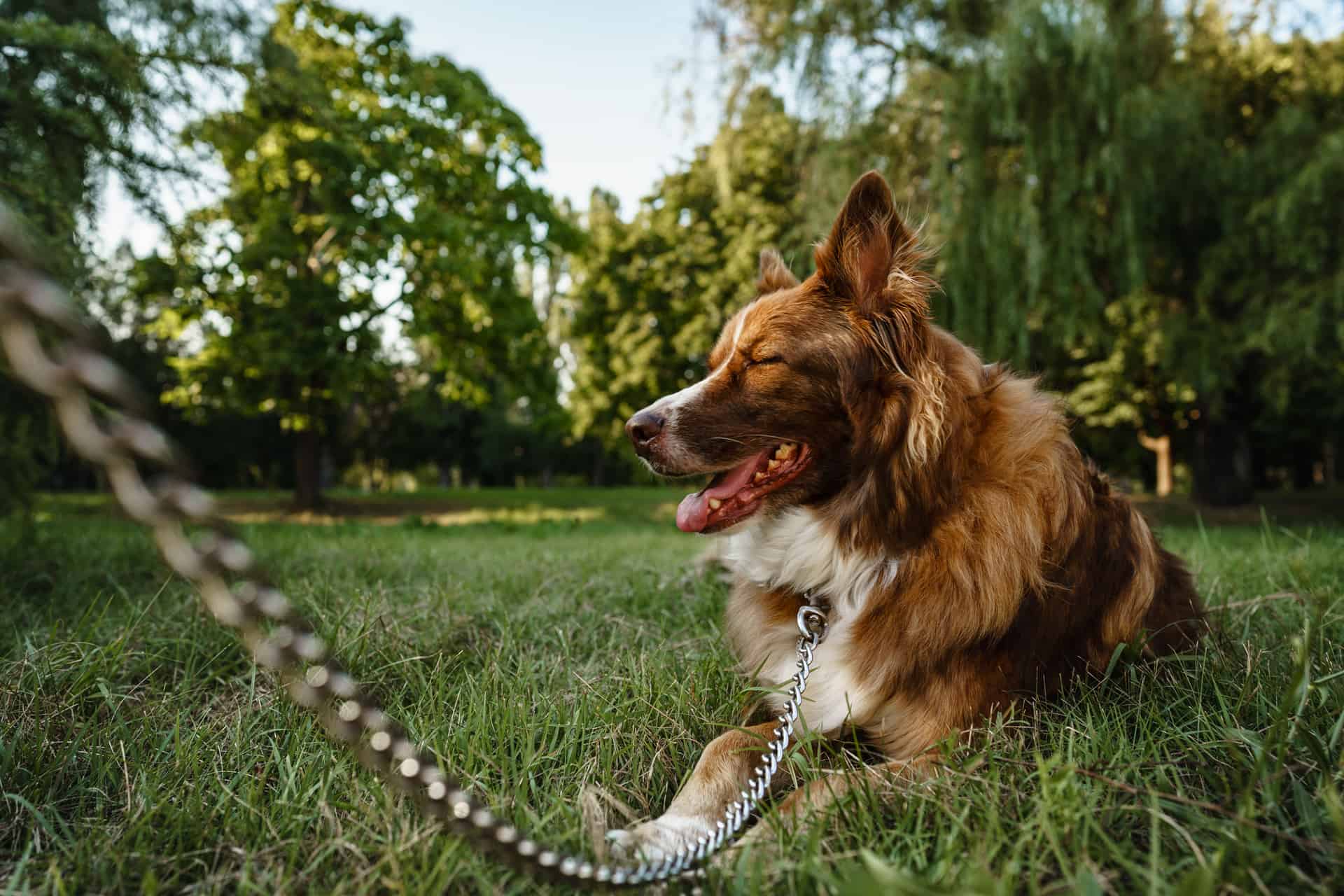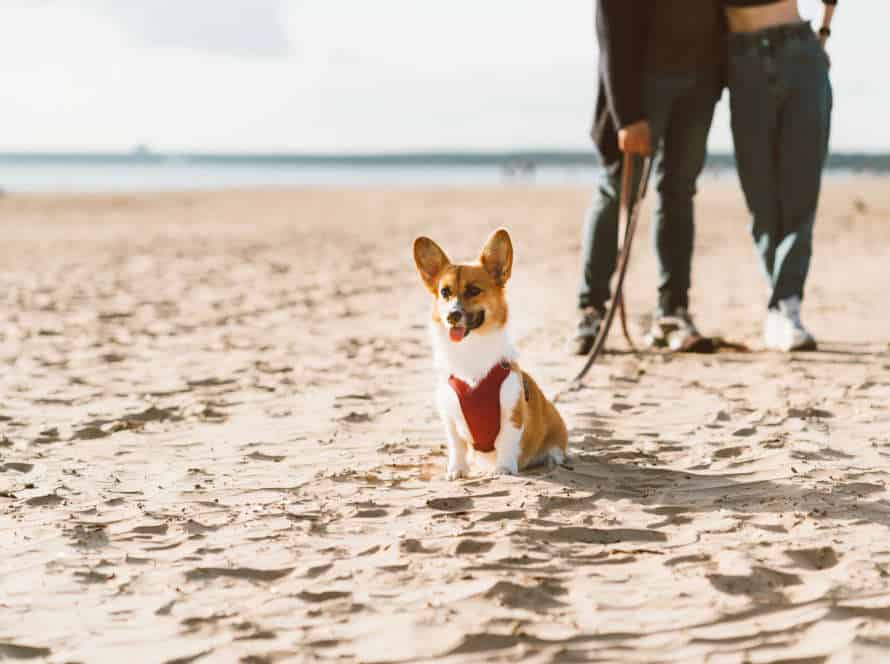When to Seek Professional Help for Leash Training Challenges
Struggling with leash training your pup? It’s time to get help from a pro! There are three main signs you need help: aggressive behavior, not listening, and feeling overwhelmed. A professional will give you tips, advice, and a plan for success. Don’t forget, it’s never too late for guidance and you can still get your dog to obey the leash.
Signs that Your Dog Needs Additional Leash Training
Leash training can be tough on doggos. Seeking extra help from professionals is a great idea if your pup needs it. Here are a few signs that your pooch may need additional assistance. Let’s discuss them!
Pulling Continuously on the Leash
If your pup is pulling on the leash while out on strolls, it’s best to tackle the issue right away. Here are some warning signs that your pooch needs to brush up on their leash technique:
- Lunging or jumping when other dog or people are around.
- Showing fear or aggression with strangers or strange sounds.
- Racing ahead, causing you to lose balance or control.
- Yapping or growling at other animals or people on walks.
If these behaviors are present, it’s time to get some leash training help. Finding a pro dog trainer can be beneficial to learn how to be the boss and put a stop to any unwanted behaviors while out and about. With a little bit of patience, perseverance and the right direction, you will be able to help your pup become a better behaved walker.
Barking or Growling at Other Dogs while on Leash
Is your dog barking or growling at other pooches while on a leash? This can be embarrassing and stressful – especially in public. If your pup is exhibiting this behavior, they likely need more leash training. Signs they need help include: pulling, lunging, and getting overly excited/anxious on walks.
If you’ve tried various techniques with no success, it’s time to talk to a professional dog trainer. They will create a personalized training plan to help your pup. Leash training takes time and patience – but with the right techniques and support, your furry friend can be a good walker!
Refusing to Walk on Leash or Lying Down on Walks
Is your dog not walking on a leash or just lying down during walks? This might be a sign they need more training.
Here are some signs that they need more:
- Pulling on the leash.
- Lunging at people or other dogs.
- Refusing to walk or stopping often.
- Barking or growling while walking.
- Chewing or biting on the leash.
If you’ve tried different leash training techniques but they keep doing these behaviors, it may be time to get professional help. A trainer can work with you and your pup to address leash training challenges. They will make your pet a better-behaved walking companion.
Tip: Don’t forget that leash training takes time and patience. If you’re dedicated and consistent, your dog will love walking on a leash.
Types of Professional Help Available for Leash Training
Leash training your pet can be tough. Don’t do it on your own – get professional help! There are lots of types of assistance. From trainers to books and websites. Let’s take a look at them. Quickly get your pet on the right track with leash training!
Dog Obedience Schools or Trainers
Leash training is an absolute must for any pup-parent. But, it can be tough! If traditional training doesn’t do the trick, then it’s time to call in the pros! There are many types of professional help: private trainers, group obedience classes, and board and train programs.
When your pup is having serious issues like leash aggression or pulling, getting help from a dog trainer or obedience school is the way to go. They know best how to teach your four-legged friend how to behave on a leash.
Certified Animal Behaviorists
Leash training your pup may be tough. You may need pro help. Certified animal behaviorists are experts who can assist you with training your pet and handle any leash issues. There are three types of pro help:
- Certified animal behaviorists who can analyze your pup’s behavior and provide personalized solutions.
- Professional dog trainers who have experience in obedience training and help teach your pooch to walk on a leash nicely.
- Vets who can identify any medical conditions causing leash trouble and suggest proper solutions.
If your pet is aggressive or scared when on a leash and you have trouble with training, it’s time for pro help. A certified animal behaviorist can offer solutions to make walking enjoyable again. Pro tip – leash training needs time, patience and consistency.
Veterinarians with Canine Behavior Expertise
If you’re having difficulty training your pup with a leash, it could be time to get professional help from a vet that specializes in canine behavior. Here are a few options:
– In-home trainers: They’ll come to your home and work with you and your pup to tackle any challenges and offer tailored solutions.
– Group training classes: Structured lessons for basic obedience and behavior modification, plus the chance to socialize your pup.
– Behavioral veterinarians: They are experts in pet behavior issues, including leash training, and can even prescribe medication if needed.
It’s important to seek professional help if basic leash training isn’t working or behavioral issues are starting to show.
Factors to Consider Before Seeking Professional Help
Struggling with leash training for your pet? Time to get professional help? First, think about factors that can affect success. Age, breed, past experiences – these all matter. Let’s explore further!
Time and Budget Constraints
Time Constraints:
Busy schedule? No consistency? Can’t be patient? Professional help might be the best choice. A trainer’ll save time by giving structured routines for faster results.
Budget Constraints:
Hiring a trainer can be costly, but worth it for successful leash training. Decide budget needs beforehand and prepare for different programs.
Think time and budget to decide if you need help for leash training challenges. The goal: successful training and safe walks for your pup.
Training Goals and Expectations
Before you get special help for leash training problems, it is important to decide on clear training aims and realistic expectations for your pup’s conduct. Here are some factors to take into account:
- Your dog’s breed and age. Certain breeds may need more training than others and age can influence how much they learn.
- Your lifestyle and needs. Consider why you want to train your pooch with a leash and which behaviours you want them to have.
- The severity of the problem. If your pup has serious leash aggression or other issues, you might need to work with a professional.
- Your budget. Professional training can be costly, so think about whether you can afford it.
Setting targets and expectations will help you and your trainer create a plan that works for your pup and increases the chances of success.
General Health and Age of Your Dog
Knowing your dog’s age and health is important before leash training.
Puppies may not be ready for leash training until they are more coordinated.
See your vet for any underlying health conditions.
When your dog is healthy, contact a professional trainer.
Be patient and consistent with the training.
Fact: Leash training helps your bond with your dog.
When to Seek Professional Help for Leash Training Challenges
Leash training is a must for owning a pup. But it can be hard. Knowing how to respond when your dog has leash training problems is tough. To make sure your pup has a pleasant experience and you use the proper techniques, you need to know when to get professional help. Let’s look at when to ask for pro help with leash training and what kinds of help are out there.
After Exhausting All Home-Based Training Methods
Leash training your pup can be tough, despite the many home-based training methods out there. But, there are signs that hint it’s time to get pro help.
These signs are:
- Your dog still pulls the leash, even after trying home-based methods.
- Your dog shows fear or aggression while walking, like barking or growling at other dogs and people.
- Your dog won’t walk on a leash or just lays down and won’t move.
Consulting a professional dog trainer can help tackle these issues and create a personalized plan for your pup.
If You’re Dealing with Aggression or Anxious Behavior
Dealing with aggression or anxious behavior during leash training? Professional help may be your best bet. Signs that you need help include growling, barking, lunging, or snapping. Also, if your dog has too much fear or anxiety, seek a professional trainer.
Minor leash issues can usually be solved by you with patience and consistency. Severe aggression or anxiety needs a skilled professional to make sure nobody gets hurt.
Remember, how your dog behaves on the leash affects how they interact with others and your relationship with them. So, make sure to get help when you need it!
If You’re Struggling to Implement Consistent Training Methods
Leash training issues such as pulling, lunging and barking can be tough to tackle on your own. Professional assistance could be the answer. A professional dog trainer can develop a unique plan to suit your pup’s individual needs. Plus, they can teach you the positive reinforcement techniques to help your pet move past their struggles and learn good leash manners.
If you’re not sure if your pup needs a pro:
- Does their behavior during walks seem more aggressive or destructive?
- Have you tried various approaches without success?
- Are you feeling overwhelmed, stressed or frustrated?
Getting help is not a sign of failure, it’s an investment in your pet’s wellbeing and your relationship.
Pro Tip: Look for a certified professional dog trainer with leash training experience to get the best results.
Frequently Asked Questions
Q: What leash training challenges warrant seeking professional help?
A: If your dog is consistently pulling on the leash, lunging at other animals, or refusing to walk on a leash altogether, it may be time to seek professional help.
Q: How can a professional trainer help with leash training challenges?
A: A professional trainer can assess your dog’s behavior and create a personalized training plan to address any specific challenges they are experiencing with leash training. They can also provide guidance and support throughout the training process.
Q: What should I look for in a professional dog trainer?
A: Look for a trainer who has experience working with dogs of all breeds and ages, and who uses positive reinforcement methods rather than punishment-based training. It’s also important to check their credentials and ask for references from past clients.
Q: How long does it typically take to see improvements with leash training?
A: The length of time it takes to see improvements with leash training can vary depending on the dog and the severity of their behavior. It’s important to be patient and consistent with the training process, and to work closely with a professional trainer to address any challenges that arise.
Q: Can I still try to leash train my dog on my own before seeking professional help?
A: Yes, it’s always a good idea to work on basic leash training techniques before seeking professional help. However, if your dog is consistently exhibiting challenging behaviors, it may be time to bring in a professional trainer to help address those behaviors.







